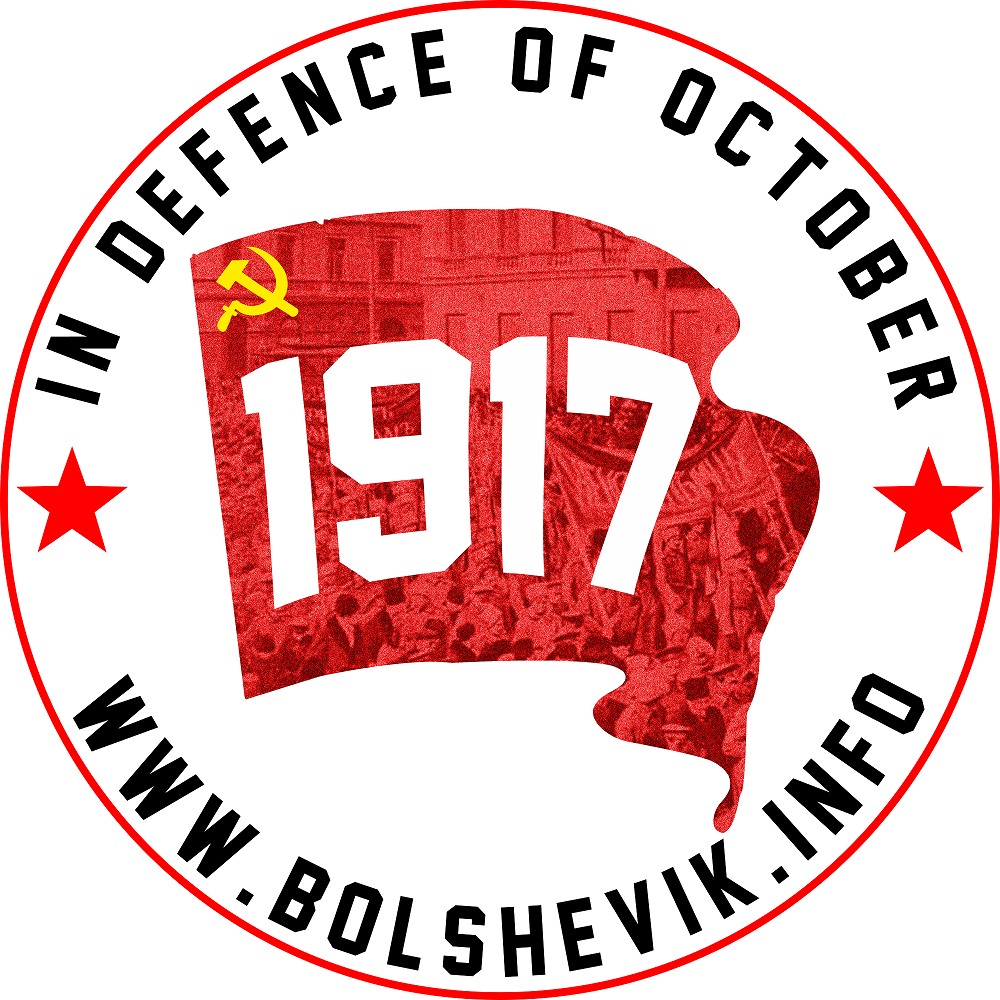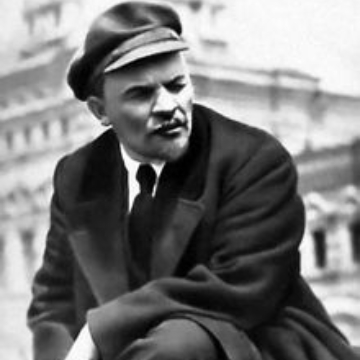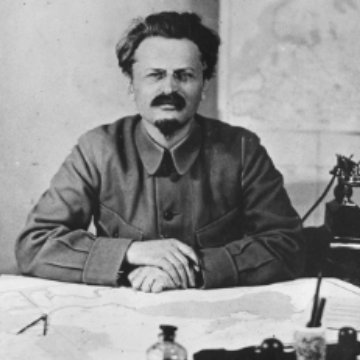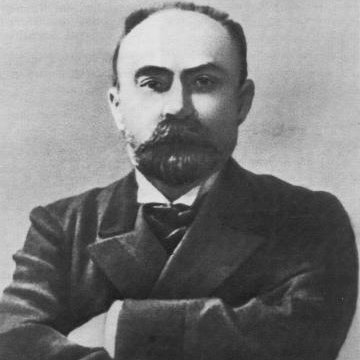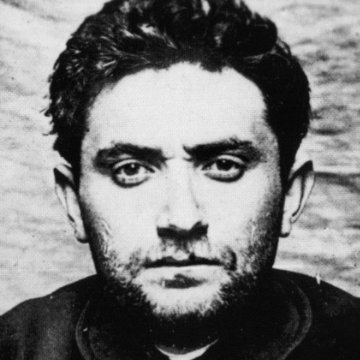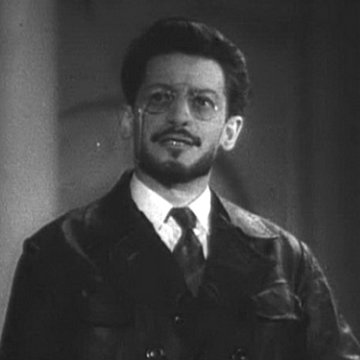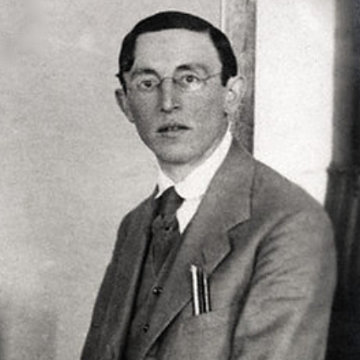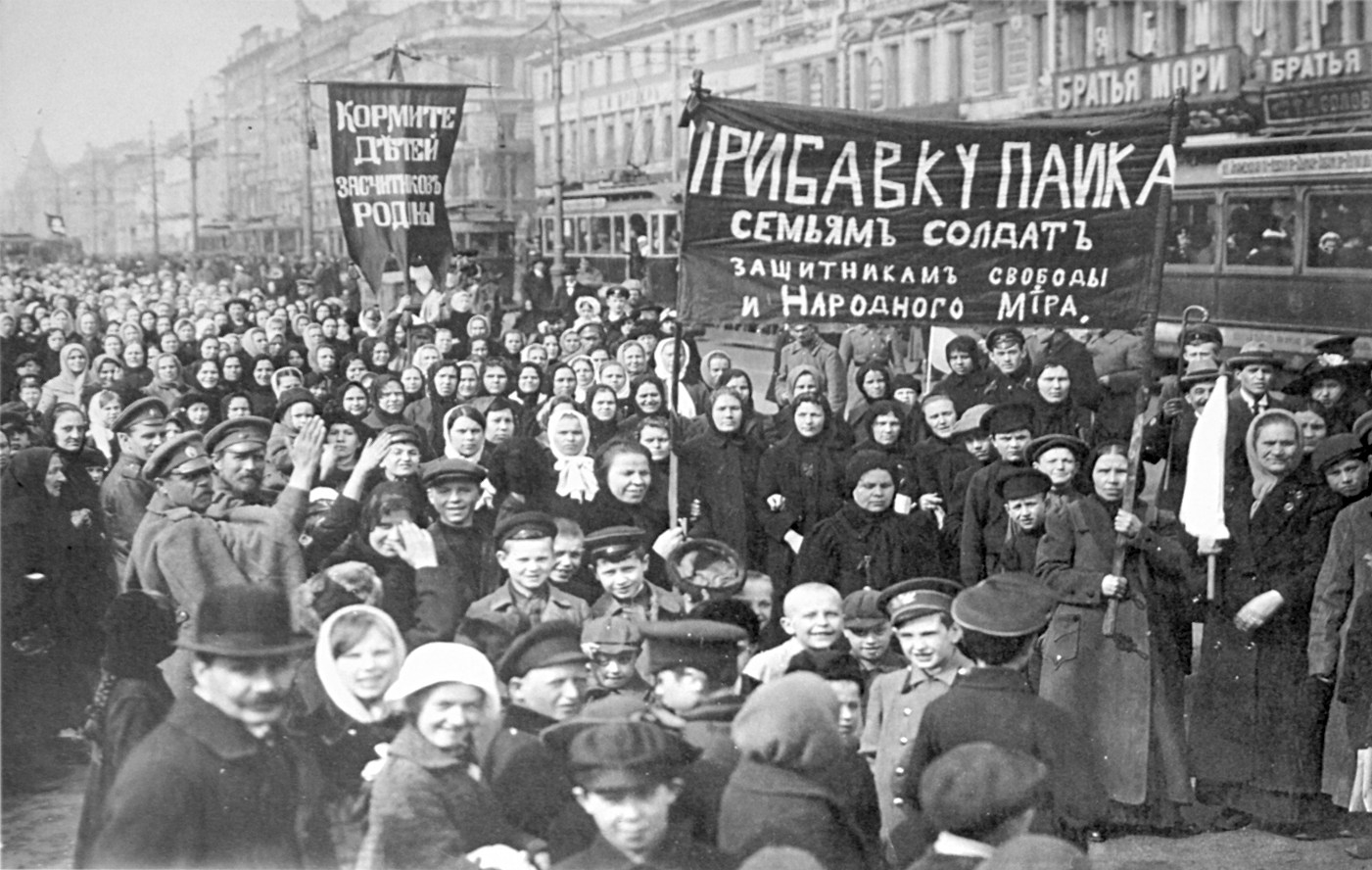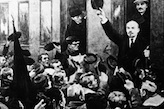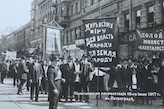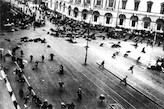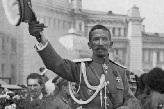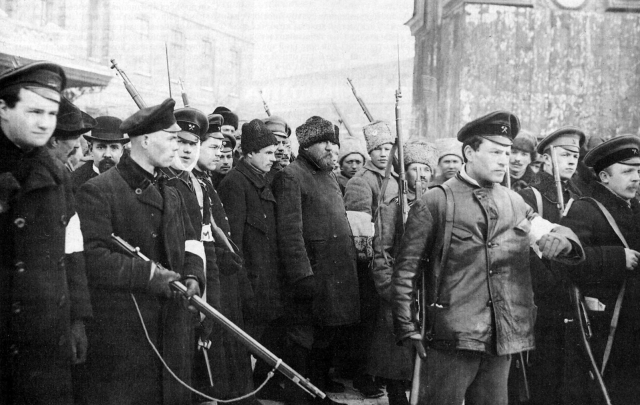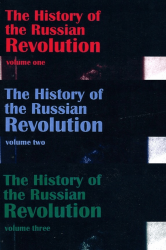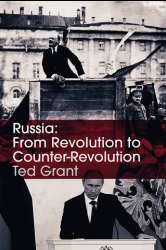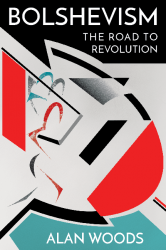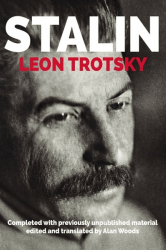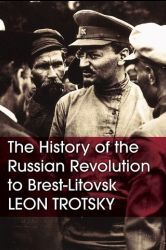"The workers and office employees of the nationalised enterprises must exert every effort and adopt extraordinary measures to improve the organisation of the work, strengthen discipline and raise the productivity of labour."
The Draft Decree was tabled by Lenin for the approval of the Supreme Economic Council in mid-December 1917
The critical food situation and the threat of famine caused by the profiteering and sabotage of the capitalists and officials, as well as by the general economic ruin, make it imperative to adopt extraordinary revolutionary measures to combat this evil.
To enable all citizens of the state, and in the first place all the working classes to undertake this struggle under the leadership of their Soviets of Workers', Soldiers' and Peasants' Deputies, and normalise the country's economic life immediately and comprehensively, stopping at nothing and acting in the most revolutionary manner, the following regulations are decreed:
1. All joint-stock companies are proclaimed the property of the state.
2. Members of boards and directors of joint-stock companies, as well as all shareholders belonging to the wealthy classes (i.e., possessing property to the value of over 5,000 rubles or an income exceeding 500 rubles per month), shall be obliged to continue to conduct the affairs of these enterprises in good order, observing the law on workers' control, presenting all shares to the State Bank and submitting to the local Soviets of Workers', Soldiers' and Peasants' Deputies weekly reports on their activities.
3. State loans, foreign and domestic, are annulled (abrogated).
4. The interests of small holders of bonds and all kinds of shares, i.e., holders belonging to the working classes of the population, shall be fully guaranteed.
5. Universal labour conscription is introduced. All citizens of both sexes between the ages of sixteen and fifty-five shall be obliged to perform work assigned to them by the local Soviets of Workers', Soldiers' and Peasants' Deputies, or by other bodies of Soviet power.
6. As a first step towards the introduction of universal labour conscription, it is decreed that members of the wealthy classes (see point 2) shall be obliged to keep, and have entries properly made in, consumer-worker books, or worker budget books, which must be presented to the appropriate workers' organisations or to the local Soviets and their bodies for weekly recording of the performance of work undertaken by each.
7. For the purpose of proper accounting and distribution of food and other necessities, every citizen of the state shall be obliged to join a consumers' society. The food boards, committees of supplies and other similar organisations, as well as the railway and transport unions, shall, under the direction of the Soviets of Workers', Soldiers' and Peasants' Deputies, establish supervision to ensure the observance of the present law. Members of the wealthy classes, in particular, shall be obliged to perform the work to be assigned to them by the Soviets in the sphere of organising and conducting the affairs of the consumers' societies.
8. The railway workers' and employees' unions shall he obliged urgently to draw up and immediately begin to carry into effect emergency measures for the better organisation of transport, particularly as regards the delivery of food, fuel and other prime necessities, and shall be guided in the first place by the instructions and orders of the Soviets of Workers', Soldiers' and Peasants' Deputies and then of the bodies authorised by the latter, and of the Supreme Economic Council.
Similarly, the railway unions, working in conjunction with the local Soviets, shall be responsible for most vigorously combating speculation in food and mercilessly suppressing all profiteering, not hesitating to adopt revolutionary measures.
9. Workers' organisations, unions of office employees and local Soviets shall be obliged immediately to set about switching enterprises which are closing down or are to be demobilised, and also unemployed workers to useful work and the production of necessities, and to search for orders, raw materials and fuel. While under no circumstances postponing either this work or the beginning of the exchange of farm produce for industrial goods pending receipt of special instructions from higher bodies, the local unions and Soviets shall be strictly guided by the orders and instructions of the Supreme Economic Council.
10. Members of the wealthy classes shall be obliged to keep all their monetary possessions in the State Bank and its branches, or in the savings-banks, and shall be entitled to withdraw not more than 100-l25 rubles a week (as shall be established by the local Soviets) for living expenses; withdrawals for the needs of production and trade shall be made only on presentation of written certificates of the organs of workers' control.
To supervise the due observance of the present law, regulations will be introduced providing for the exchange of existing currency notes for new currency notes. All the property of persons guilty of deceiving the state and the people shall be confiscated.
11. All offenders against the present law, saboteurs and government officials who go on strike, as well as profiteers, shall be liable to a similar penalty, and also to imprisonment, dispatch to the front, or hard labour. The local Soviets and bodies under their jurisdiction shall urgently decide upon the most revolutionary measures to combat these real enemies of the people.
12. The trade unions and other organisations of the working people, in conjunction with the local Soviets, and with the collaboration of the most reliable persons recommended by Party and other organisations, shall form mobile groups of inspectors to supervise the implementation of the present law, to verify the quantity and quality of work performed and to bring to trial before the revolutionary courts persons guilty of violating or evading the law.
The workers and office employees of the nationalised enterprises must exert every effort and adopt extraordinary measures to improve the organisation of the work, strengthen discipline and raise the productivity of labour. The organs of workers' control are to present to the Supreme Economic Council weekly reports on the results achieved in this respect. Those found guilty of shortcomings and neglect are to be brought before revolutionary courts. [The last paragraph comes from the magazine and was published for the first time in Collected Works.]
Source: Marxist Internet Archive.

